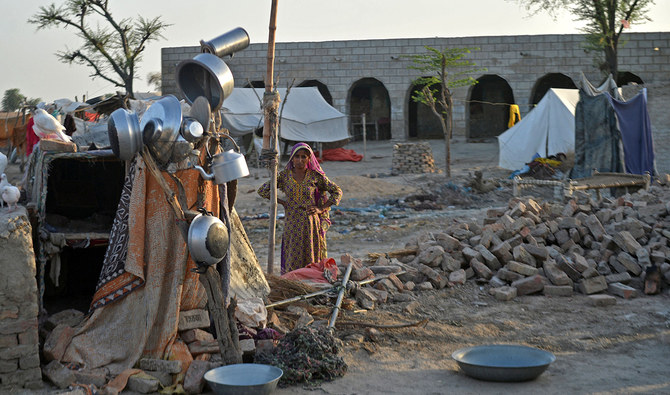ISLAMABAD: The United States Agency for International Development (USAID) has announced $16.4 million in additional development and humanitarian assistance to support the flood-affected population of Pakistan’s Sindh province, an official statement from the agency confirmed on Tuesday.
Pakistan witnessed torrential rains last year which were followed by devastating floods that claimed 1,700 lives, impacted 33 million people, killed livestock, and washed away swathes of agricultural land. According to official estimates, the devastation caused losses of about $30 billion, putting the economy of the cash-strapped country under further stress.
Sindh and Balochistan were the worst-affected provinces where flood waters have still not receded from certain areas.
“Today in Sindh, Pakistan, USAID Deputy Administrator Isobel Coleman announced $16.4 million in additional development and humanitarian assistance to support the resilience of communities in Pakistan that experienced 2022’s historically severe floods,” the statement said.
It added that the new funding will reach over 20 million flood-affected individuals and assist with recovery, risk reduction, and resilience.
“The assistance will address worsening food insecurity and malnutrition and help curb the spread of disease,” the statement continued while informing the funding would also support humanitarian partners to provide nutritious food to mothers and their children, help families rebuild local infrastructure to protect them from future disasters, and increase protection services to prevent gender-based violence and support survivors.
In the aftermath of last year’s floods, USAID also deployed a disaster-assistance response team to lead the US humanitarian response and rapidly provide aid to the affected communities.
The agency worked with partners to quickly scale up vital humanitarian assistance, including through partnering with the US Department of Defense, to successfully complete an air bridge that delivered nearly 630 metric tons of life-saving relief commodities to Pakistan.
“The US is one of the largest donors to Pakistan, providing more than $200 million in humanitarian and development assistance since 2022’s catastrophic floods,” the statement added.
“The United States continues to stand with the people of Pakistan as they recover from the impacts of the historic floods.”















